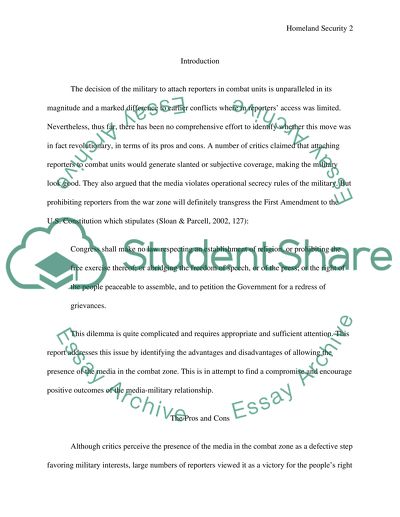Cite this document
(“The Pros and Cons of Allowing Media Presence in Combat Zones Essay”, n.d.)
Retrieved de https://studentshare.org/military/1391196-the-pros-and-cons-of-allowing-media-presence-in-combat-zones
Retrieved de https://studentshare.org/military/1391196-the-pros-and-cons-of-allowing-media-presence-in-combat-zones
(The Pros and Cons of Allowing Media Presence in Combat Zones Essay)
https://studentshare.org/military/1391196-the-pros-and-cons-of-allowing-media-presence-in-combat-zones.
https://studentshare.org/military/1391196-the-pros-and-cons-of-allowing-media-presence-in-combat-zones.
“The Pros and Cons of Allowing Media Presence in Combat Zones Essay”, n.d. https://studentshare.org/military/1391196-the-pros-and-cons-of-allowing-media-presence-in-combat-zones.


